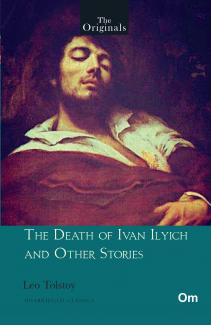The Originals The Death of Ivan Ilyich
Leo Tolstoy was born in 1828 in Russia's Tula Province,Yasnaya Polyana, into an aristocratic family. Regarded as the greatest living novelist by Fyodor Dostoyevsky and Virginia Woolf, Tolstoy's two seminal works are War and Peace (1869) and Anna Karenina (1878). When he was a student of Oriental Languages at the University of Kazan, his teachers thought he was an incapable student who was unwilling to learn. Unsurprisingly,Tolstoy returned to Yasnaya Polyana. In 1851, reeling under gambling debts, he decided to accompany his elder brother Nikolay, an army officer, to the Caucasus and join the army. He served as a second lieutenant in the Crimean War (1853-1856). It was during this period that the writer in him was born. One of his earliest and most notable autobiographical novels was Childhood, Boyhood, and Youth (1852-1856). Novellas such as The Death of Ivan Ilyich (1886) and Hadji Murad (1912) followed. In his last days,Tolstoy was revered as a moral and religious teacher. Even Mahatma Gandhi sought the Grand Old Man's advice on non-violence and resistance. In 1910,Tolstoy died of heart failure at the railroad station of Astapovo, Russia. He was 82. ... Read more Read less
Russian writer Leo Tolstoy (1828−1910) is revered for both his novels and his brilliantly crafted short stories. This collection features some of the master’s finest short stories in translation. The Death of Ivan Ilyich is a long, lyrical, and poignant exploration of a man’s arduous journey towards the acceptance of his own mortality. It is also an incisive comment on the hypocritical modern middle-class lifestyle and its limitations. By confronting death, the hero of the story contemplates the meaning of life and man’s place in the world. The Death of Ivan Ilyich is considered one of the masterpieces of Tolstoy’s later fiction and it was written soon after his religious conversion in the 1870s. The Kreutzer Sonata is an unflinching portrayal of marital discord and breakdown and The Devil traces the complex trajectory of sexual temptation and desire. Tolstoy’s short stories dissect familial bonds, romantic love, the irrationality of human impulses as well as significant social and political churnings in 19th- century Russia. ... Read more Read less











